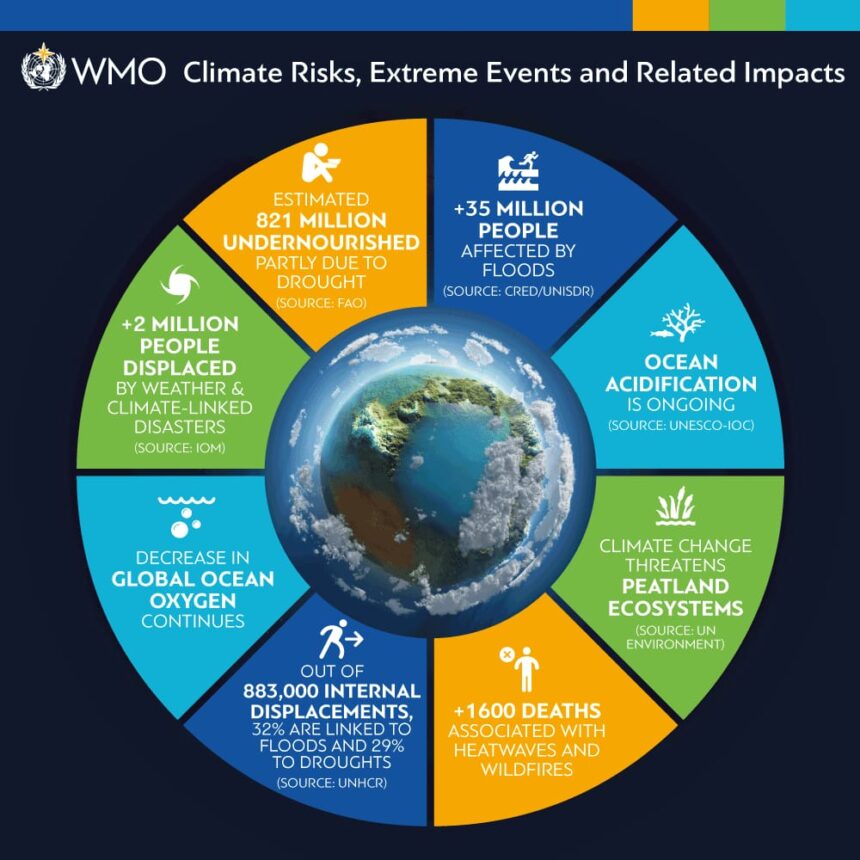A global initiative led by the World Health Organization (WHO) and World Meteorological Organization (WMO) is scaling up efforts to link climate and weather data with public health systems across 80 low- and middle-income countries. Backed by $11.5 million from the Rockefeller Foundation and Wellcome Trust, the collaboration aims to strengthen early-warning systems and climate-informed health planning especially in vulnerable regions of Africa, Latin America, and Asia.
This expansion of the WHO-WMO Climate and Health Joint Programme, established in 2018, includes seven pilot projects designed to demonstrate how climate science can directly support health services, such as issuing extreme heat alerts and guiding outbreak responses.
At a recent Geneva event, the Mongolian Red Cross shared how local herders now receive timely alerts on extreme cold events known as “Dzud” thanks to close cooperation between the national meteorological agency and humanitarian groups. This model illustrates the broader goal: turning “climate intelligence into health intelligence.”
Extreme weather is already exacting a high toll. In 2023, heatwaves alone caused an estimated 500,000 deaths and $835 billion in lost income. Yet only half of the world’s meteorological agencies issue heat warnings, and just 23% of health ministries integrate climate data into their planning.
“After a decade of deadly heat, the health sector must evolve,” said Dr. Naveen Rao of the Rockefeller Foundation. Advancing warning systems in 57 countries could save nearly 100,000 lives annually, according to WHO estimates.
Experts at the World Health Assembly emphasized that health is a powerful entry point for climate discussions, given its personal and immediate impact on people. Dr. Anna Stewart Ibarra stressed that while complex issues like urbanization and biodiversity loss can seem abstract, “health is something everyone cares about.”
WMO Secretary-General Prof. Celeste Saulo and WHO’s Chief Scientist Dr. Jeremy Farrar urged breaking down silos between sectors—health, environment, energy, and more—to address global challenges like pandemics, food insecurity, and climate-driven inequality.
Looking ahead, the role of technology—especially artificial intelligence and digital twin modeling is expected to accelerate access to real-time, climate-sensitive health insights. These tools can simulate and test solutions before real-world deployment, saving time and resources.
However, as researcher Francisco Doblas-Reyes warned, “Technology alone won’t save us.” Collaborative, cross-sectoral approaches will be key to building resilient, climate-ready health systems worldwide.














